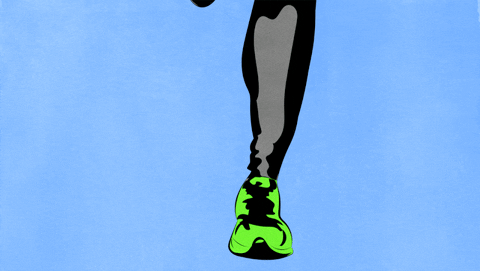- marginal steps
- Posts
- Why you might want to avoid late night exercise
Why you might want to avoid late night exercise
it could be bad for your sleep
Marginal StepsThe 120 second read providing instant value to your lifestyle every Wednesday and Saturday. | Edition #3 - Saturday June 15th |

Intense Evening Exercise: Why you might want to reconsider late night workouts
↓
DID YOU KNOW
Exercise is a stressor and it causes your stress response system (sympathetic nervous system) to activate.
Triggering your stress response system in the evening through intense exercise will negatively impact your sleep onset and sleep quality.
HOW DO WE KNOW THIS
Part of our stress response system involves the secretion of adrenaline and cortisol.
Adrenaline plays a role in preparing your body to respond (for example, during exercise) by increasing heart rate, blood pressure, and expanding airways.
This helps glucose (energy) get to your muscles and brain so you can take action.
Cortisol suppresses non-essential bodily functions during a stress response in the short term, allowing the body to focus resources on reacting to the stressor. Outside of stress, cortisol naturally helps wake you up each morning.
Increased levels of these hormones in the evening, indicating heightened physical activation, prevent the natural nighttime decline in both.
This disrupts your sleep cycle, making it more difficult to fall asleep and get good quality sleep.

WHAT TO DO
Where possible, exercise earlier in the day, especially if the exercise is going to be intense.
This allows time for a reduction of physiological activation prior to bed, increasing the likelihood of good sleep.
DISC
Sleep is important, but so is exercise.
Sometimes you may only be able to exercise in the evening. In this situation, you have to weigh up what’s more important for you given your goals at that time.
For example, if I were marathon training and needed to get my miles in, I would still go for that evening run even though I know it would negatively impact my sleep that evening.
I’d then plan the following day’s exercise and nutrition to mitigate this impact, allowing me to get a good recovery afterwards.

↓
(sources and TL;DR)
PLEASE NOTE
I research each topic thoroughly before sending each newsletter. However, by its very nature, the science on the subjects I discuss is ever-evolving. The information, at the time of sending, was accurate to the best of my knowledge.
The information contained in this newsletter is not medical advice, and I am not medically qualified. You should always research independently or consult a medical professional before making any changes to your lifestyle, including on the subject discussed here.
Sources for this installment of Marginal Steps:
TL;DR
Intense exercise triggers a stress response, secreting cortisol and adrenaline, which activates the body (increased blood pressure, heart rate, etc.).
Doing this in the evening will impair sleep, as physical and mental activation are the opposite conditions for good quality sleep.
To prevent this, exercise earlier in the day. On days when evening exercise is essential, plan the following day accordingly to prioritise recovery.